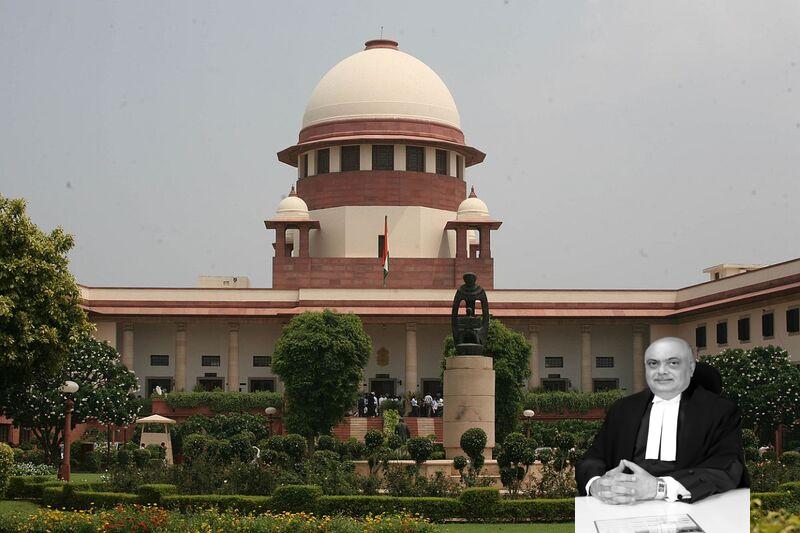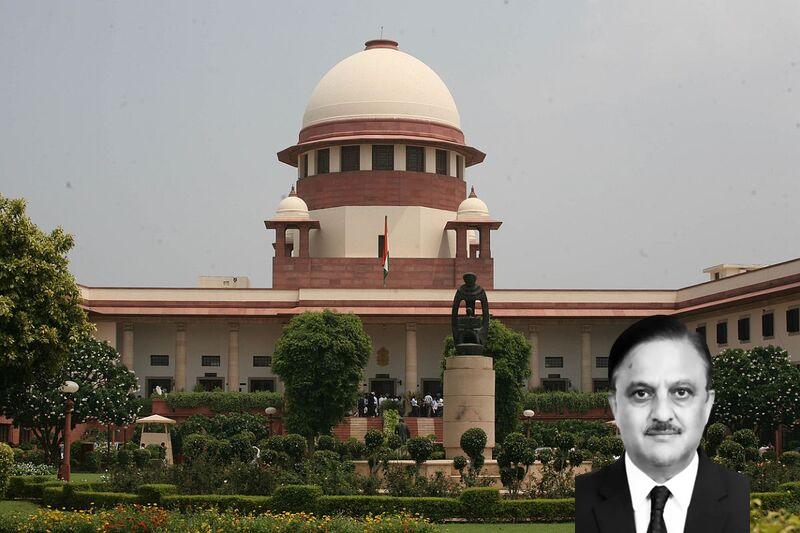2023 INSC 1013 REPORTABLE IN THE SUPREME COURT OF CIVIL INDIA APPELLATE JURISDICTION CIVIL APPEAL No.1527 OF 2022 RAMKRISHNA FORGINGS LIMITED…
APPELLANT VERSUS RAVINDRA LOONKAR, RESOLUTION PROFESSION OF ACIL LIMITED & ANR. It was the subject-matter of a 4 Corporate Insolvency Resolution Process (hereinafter referred to as “CIRP”) which was initiated on an application filed by IDBI Bank Ltd.
The appellant-Resolution Applicant (hereinafter referred to as the “appellant”) submitted its first Resolution Plan on 11.04.2019 providing to pay Rupees seventy-four crores to all the stakeholders including Rupees sixty-three and a 5 half crores to Financial Creditors (hereinafter referred to as the “FC(s)”). In terms of such approval of the Resolution Plan by the CoC, the RP moved Approval Application under Sections 30(6) and 31 of the Code seeking approval of the 7 Resolution plan before the Adjudicating Authority-NCLT on 16.08.2019. Shyam Divan, learned senior counsel for the appellant submitted that the Resolution Plan initially submitted by the appellant was negotiated further on various dates and, ultimately the final outcome was the Resolution Plan submitted on 05.08.2019. Thus, it was submitted that after taking care of all the statutory procedural requirements and on the basis of such reports and proper examination of the materials on record and having exercised its commercial wisdom, the CoC-approved Resolution Plan was put up before the NCLT for approval, but the NCLT, exceeding its jurisdiction and without ascertaining any reason for such course of action, passed the direction for revaluation. At best, learned senior counsel contended, that it could have disapproved the Resolution Plan on cogent ground(s) relevant for doing so after testing whether it complies with the requirements of Section 30(2) of the Code, but it could not have acquired jurisdiction, where no such residuary or equity based jurisdiction is available under the Code by interfering with the CoC’s decision without pointing out any non-conformity with the provisions of the Code and the Regulations thereunder. Further, it has been explained that such jurisdiction which is statutorily defined, recognised and conferred, cannot be equated with the jurisdiction in equity that operates independently of the provisions of the statute for the reason that the Adjudicating Authority-NCLT, which is a body owing its existence to the Code, must abide by the nature and extent of its jurisdiction as defined therein.
It was further canvassed by learned senior counsel that the Code provides for a mechanism for carrying out valuation of the assets of a Corporate Debtor in form of the Insolvency and Bankruptcy Board of India (Insolvency Resolution Process for Corporate Persons) Regulations, 2016 (hereinafter referred to as the “CIRP Regulations”), particularly Regulations 27 and 15 35 thereof, inasmuch as Regulation 27 provides that the RP shall appoint two registered valuers to determine the fair value and liquidation value of the Corporate Debtor whereas Regulation 35 provides that the two valuers shall submit the fair value and liquidation value to the RP after 16 physical verification of the inventory and fixed assets of the Corporate Debtor and further provides that if the estimates shown by the two valuers are significantly different, or upon a proposal from the CoC, the RP may appoint a third registered valuer for valuation of the assets of the Corporate Debtor. It was submitted that this Court has held, in Maharashtra Seamless Limited v Padmanabhan Venkatesh, (2020) 11 SCC 467, the relevant being at Paragraphs 27 to 29, that aspects related to the valuation of the Corporate Debtor are not open to judicial scrutiny by the NCLT as the object behind such valuation process is to assist the CoC in taking a proper decision in respect of a Resolution Plan and the valuation conducted in respect of the assets of the Corporate Debtor and it has further been indicated that the Adjudicating Authority-NCLT can approve a Resolution Plan even when it is below the liquidation value and that there is no provision under the Code which states that a resolution applicant’s bid must match the liquidation value 18 as the liquidation value is determined merely to assist the CoC in taking a decision on the Resolution Plan.
Also Read: https://newslaw.in/supreme-court/unfair-charge-framing-a-legal-analysis/
On the same proposition, learned senior counsel referred to M K Rajagopalan v Dr Periasamy Palani Gounder, 2023 SCC OnLine SC 574, the relevant being at Paragraphs 167, 168 and 169, holding that when the CoC was fully satisfied with the valuation conducted in respect of the Corporate Debtor and had endorsed the same, then it was unnecessary and unjustifiable on the part of the NCLAT to presume irregularities in the Resolution Plan and interfere therewith.
It was further stated that Regulation 38(2)(d), CIRP 20 Regulations has been recently introduced through the Insolvency and Bankruptcy Board of India (Insolvency Resolution Process for Corporate Persons) (Second Amendment) Regulations, 2022 (hereinafter referred to as the “2022 Amendment”) with effect from 14.06.2022 which requires, for all Resolution Plans submitted to the Adjudicating Authority on or after the 2022 Amendment to provide for treatment of avoidance applications post-approval of a Resolution Plan, along with the manner in which the proceeds from such proceedings will be distributed. , 2023 SCC OnLine Del 155, Paragraph 91 whereof says that when any kind of benefit is acquired from the adjudication on avoidance application and the Resolution Plan is silent on the treatment of such applications, such benefit must be given to the creditors of the Corporate Debtor. v Committee of Creditors of Educomp Solutions Limited, 2021 SCC OnLine SC 707, holding that the Adjudicating Authority under Section 31(2) of the Code can only examine the validity of the Resolution Plan on the anvil of the stipulation in Section 30(2) of the Code and either approve or reject the Resolution Plan but cannot compel the CoC to negotiate further with a successful Resolution Applicant and also that the Adjudicating Authority is duty bound to ensure the completion of CIRP within the prescribed timeline of 330 days under the Code. Learned senior counsel submitted that even if for the sake of argument, it may be accepted that the NCLT can exercise discretion in rare cases and order for re-valuation, in the present 24 case, the same cannot be justified as absolutely no reason has even been indicated by the NCLT or the NCLAT for undertaking such exercise in respect of the assets of the Corporate Debtor, which is arbitrary and unjustified. In the present case, although the RP and CoC were arrayed as respondents but having regard to the issues raised, this Court by order dated 05.05.2022 had requested the learned Solicitor General, Mr. For such proposition, he relied upon the decision in Vallal RCK v Siva Industries and Holdings Limited, 2022 SCC OnLine SC 717, the relevant being at Paragraph 24, with regard to the binding and final nature of the Resolution plan after due approval by the CoC.
However, it was also pointed out that in cases which warrant interference, to contend that the Adjudicating Authority-NCLT has no jurisdiction to decide any dispute with respect to valuation and take remedial steps to correct an erroneous valuation exercise would not be the correct proposition in view of the powers conferred under Section 60(5) of the Code.
GH 38 (Land) in Sector 1, IMT Manesar, Haryana, which was allotted by the Haryana State Industrial and Infrastructure Development Corporation to the Corporate Debtor, it was submitted that the Resolution Plan itself provisions that proceeds from monetisation thereof will go to the FC(s). ( supra ) are clear authorities that the CoC’s decision is not to be subjected to unnecessary judicial scrutiny and intervention. In Kalpraj Dharamshi v Kotak Investment Advisors Limited, (2021) 10 SCC 401, the Court concluded that ‘… in view of the paramount importance given to the decision of CoC, which is to be taken on the basis of “commercial wisdom”, N CLAT was not correct in law in interfering with the commercial decision taken by CoC by a thumping majority of 84.36%.
No is there a residual equity based jurisdiction in the adjudicating authority or the appellate authority to interfere in this decision, so long as it is otherwise in conformity with the provisions of IBC and the Regulations under the enactment.
Union of India [Maneka Gandhi v. Union of India, (1978) 1 SCC 248] into the provisions of IBC.
The U NCITRAL, in its Legislative Guide on Insolvency Law, has succinctly prefaced its recommendations in the following terms [Available at https://uncitral.un.org/sites/uncitral. It needs no emphasis that neither the adjudicating authority nor the appellate authority have an unchartered jurisdiction in equity. v ICICI Bank, (2018) 1 SCC 407 and Swiss Ribbons Private Limited v Union of India, (2019) 4 SCC 17, the Code was specifically introduced by Parliament for ensuring quick and time-bound resolution of insolvency of corporate entities in financial trouble, by first attempting to revive the Corporate Debtor, failure whereof would entail liquidation of the Corporate Debtor’s assets, and no unnecessary impediment should be created to delay or derail the CIRP. As discussed previously, the final Resolution Plan provided for the monetization proceeds of the land as also the avoidance amounts to go to the FC(s) of the Corporate Debtor. It is worthwhile to note that the Adjudicating Authority has jurisdiction only under Section 31(2) of the Code, which gives power not to approve only when the Resolution Plan does not meet the requirement laid down under Section 31(1) of the Code, for which a reasoned order is required to be passed. If, within its 39 limited jurisdiction, the adjudicating authority finds any shortcoming in the resolution plan vis–vis the specified parameters, it would only send the resolution plan back to the Committee of Creditors, for re-submission after satisfying the parameters delineated by the Code and exposited by this Court. There may have been a situation where due to glaring facts, an order of the nature impugned herein could be left untouched and this Court would have refrained from interference, but only if detailed reasoning, disclosing the facts for being persuaded to embark on such path, were discernible in the order dated 01.09.2021, which unfortunately is cryptic and bereft of detail. The order dated 01.09.2021 of the NCLT and the Impugned Judgment dated 19.01.2022 of the NCLAT are set aside. No.25463/2022: Does not survive in view of the decision in the appeal; disposed of.
No.25464/2022: Does not survive in view of the decision in the appeal; disposed of. In this behalf, one may peruse the decisions in Embassy Property Developments Private Limited v State of Karnataka, (2020) 13 SCC 308 and Gujarat Urja Vikas Nigam Limited v Amit Gupta, (2021) 7 SCC 209.
Case Title: RAMKRISHNA FORGINGS LIMITED Vs. RAVINDRA LOONKAR, RESOLUTION PROFESSIONAL OF ACIL LIMITED
Case Number: C.A. No.-001527 / 2022



